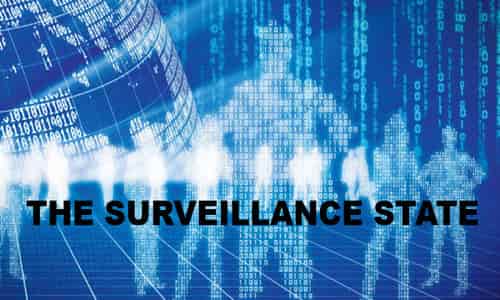20 Ways Technology Is Tracking You On A Constant Basis
 By PNW Staff July 04, 2016
Share this article:
By PNW Staff July 04, 2016
Share this article:
The Internet is essentially a giant copying machine. Every time you
send an email, you're sending a copy of your message to the recipient.
The process is more or less the same for
every communication that's made whether we think of what we're doing as
communication or not.
But everything we do online starts with a command which adds up to a message which is stored, duplicated and shared.
Our
mobile technology does the same thing, and this process enables our
devices to generate a constant stream of information about our behavior
both in the real world and online.
Here are 20 ways technology is tracking you on a constant basis.
Online Banks- If you use PayPal or Square to hold and spend money online, every transaction is recorded.
Automobile
Computerization- Most cars built since 2006 use integrated computer
components which record and transmit navigation data.
Roadway
Sensors- Cameras on light poles, cable sensors, and intersection
pressure plates record how many cars pass over, and in some cases can be
used to track a single vehicle.
Social Media-
If you spend any time on social media you already know and have chosen
not to think about how much personal information you're giving away.
Ride Sharing Taxis- Modern taxi services, like Uber, make an electronic record of your travel which can be accessed and shared.
Air Travel- Your flight schedules, and locations are all logged in a database.
Drone Spying- Along our borders, and around military bases, surveillance drones can capture and record your activities.
Snail Mail- Every piece of mail that comes to and from your home is scanned and goes into a permanent online database.
Utility Usage- Your electricity and water usage are monitored and recorded.
Face
Recognition Software- Every time your image finds its way onto the
Internet, especially on Facebook, face recognition software is ticking
away to identify you.
Cell Phone Call and
Location Data- Everything your smartphone does is recorded including
location indicators and other data usage.
Security
Cameras- Most security camera feeds are stored in online sharing
services which can easily be viewed by intelligence agencies or hackers.
Browser
Data- Google has been tracking browser user's online behavior for
years. They do it for advertising research and to develop tech that can
anticipate your next online purchase.
Smart
Homes- Intelligent appliances don't just work on preset timers and obey
our commands, they also transmit all usage data to the Internet via a
wifi link that is often not advertised.
Home
Security- As with smart homes and appliances, our home security systems
often transmit data over the Internet where it can be collected.
Credit cards- Every purchase you make is tracked, recorded, and shared with other merchants and agencies.
Smart
Devices- This covers a lot of ground. It basically means anything
that's interactive and can communicate with the Internet.
Online
Merchants- Buying things online creates at least three records of your
activity, your browser movements, the record of sales, and the delivery
info.
Public Libraries- One of the oldest ways
to monitor people's private thoughts. Governments can track a person's
public library record to make determinations about possible criminality
or dissident political thoughts- and they don't even need computers to
do it.
IRS- This federal agency tracks of all your financial information from the moment you begin working until death.
Of
course, there are even more frightening ways people can be tracked and
are likely to be tracked in the future- such as data firms secretly
using your webcam and microphone to spy on you.
People
are increasingly warming up to the idea of having RFID chips installed
in their bodies in order to carry medical, financial or other
information.
But these chips can be surreptitiously scanned to track a person's location, their health status, and their behavior.
What's
more, these are just the tip of the iceberg, and they are only the
tracking devices that officials and tech firms admit can be used to
track you.
When you imagine the experimental,
and secret military methods of tracking people that are likely to exist -
you realize there is truly no place to hide.

No comments:
Post a Comment